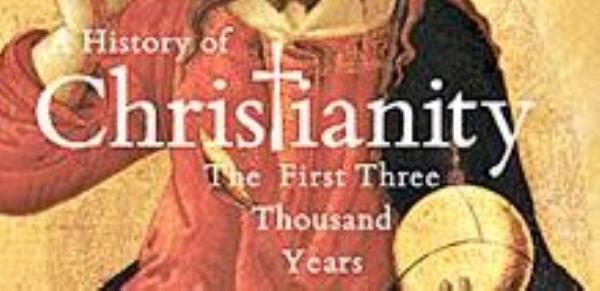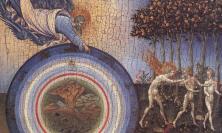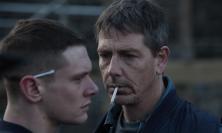Christians in any era find themselves in a peculiarly complex relationship to their own history. On the one hand there are the quasi-accidental narratives of leading persons and personalities, social, political and economic conjunctions, dominant, minority and shifting cultural concepts which belong to the common genre of history writing. But in the Christian case, history is also the field in which the action of God is discovered, where men and women encounter and embrace (or not) the salvation offered through Jesus Christ. As a result the texts of Christian history, written as such, are never simply about the past, but are also a crucial means of interpreting the present and guiding into the future.
This is above all true of the writings of the Old and New Testament, but has become increasingly and controversially true of the history of the development and growth of Christianity. The rival histories of Christianity produced by reformers and Catholics, competing accounts of the Middle Ages, Newman’s ‘Development of Doctrine’, and the re-exploration of Patristic writing in 19th Century Anglicanism and 20th Century Roman Catholicism, have been attempts not just to discover how we got here, but to determine whether it is necessary for us to be here rather than somewhere else, how far we are being faithful to what is essential in our tradition or how far we have become caught up in what is contingent to the detriment of our collective integrity.
As a result, the writing of Christian history can all too easily get caught up in the polemical and the local. We need our salvation history and will too often settle for a consoling narrative that sits light to the disturbing complexities and scale of wider human history. In our culture, too, what applies to Christian history can apply to post-Christian history as well: history that deconstructs religion can be just as prone to simplifying reality in order to justify a (different) set of comfortable truths.
Professor Diarmaid MacCulloch’s A History of Christianity represents a style of doing religious history that precisely does justice to complexity, explores historical contexts from within, respects motivation and is cautious in judging other centuries too quickly from the perspective of our own. His early work on the Reformation (Reformation: Europe’s House Divided) demonstrated his formidable capacity for interweaving the distinctive narratives and developments in the very different political arenas of Christian Europe, from Poland to Spain and from Scandinavia to Italy, in a way that breaks open the more partial understandings of the history of the period with which most of us have been brought up. His History of Christianity brings the same sweep and scale to the whole narrative of Christian history in an account that deliberately sets out to acknowledge the real diversity of the different forms and traditions that make up that history.
He does not write from the perspective of a confessional Christian – he makes this plain in his introduction – but does so as one brought up in the Christian faith who describes himself now as ‘a candid friend of Christianity’. He recognises the perennial value of religious seriousness in approaching the ‘mystery and misery of human existence’ and of the ‘solemnity of religious liturgy as a way of confronting these problems.’ Refreshingly (and he is surely not alone) he says: ‘I live with the puzzle of wonderment how something so apparently crazy can be so captivating to millions of other members of my species’. He sees his writing as, in part, an attempt to answer the question for himself in (he offers with irony) ‘an apophatic form of the Christian faith’.
His narrative begins with the development of Hellenistic high culture on the one hand and the prophetic, political and cultic narratives of the Hebrew Kingdoms of Israel and Judah on the other. These are the streams that flow together into the second Temple Judaism out of which Christianity was born, with its distinctive dynamic blend of reason and revelation, tradition and interpretation. Hellenistic philosophy-sciences provide the language in which Jews and Christians blend salvation narratives with systematic accounts of God and the cosmos. For Christians, that language will provide the basis for an emerging narrative of a combat between orthodoxy and heresy.
Professor MacCulloch throughout sets those narratives of combat and the search for identity in a context, political, social and personal, in which material sources enrich the often partisan textual evidence. Characteristic of his account are extremely helpful summaries of often-complex (not to say simply abstruse) debates, which manage to be concise, illuminating and subtle. Anyone who has attempted to explain the homoousios dispute between Athanasius and Arius (‘of the same being as the Father’) and its aftermath will appreciate the succinct account on pp. 211 – 222, which also discusses the significance of that dispute for Christianity in its new role as the Imperial religion. Again, any simple account of the relationship between heretics and orthodox is subverted by the glimpse into the role of the Arian Goths between Western and Byzantine Christianity, which is framed around a reflection on the mosaics of Sant’ Apollinare in Ravenna designed for Theoderic (p. 321).
Most significant throughout the book is the detached examination of the relationship between power politics and faith, which is at once helpful and illuminating and yet deeply disconcerting. The Imperial Christianity in the East typically dwells on the monarch as the source of unity and authority. This understanding which develops in Constantinople, the New Rome, as the Western Empire collapses, is carried into the culture of Imperial Russian Orthodoxy, when Byzantium, in its turn, falls to the Ottoman armies and Moscow is left to emerge as the ‘Third Rome’. Meanwhile, in the West, where the Church structures provide the only continuity with the Imperial past, Christianity witnesses a long slow struggle between Pope, Emperor and eventually local monarchs over the question of who has the ultimate authority, religious and secular, in a debate which rumbles on into our own current questions about the relationship between Church and State.
Side by side with the development of mainstream Christianity – defined by those Churches who accept the definition of Christ at Chalcedon as ‘one person in two natures’ – Professor MacCulloch also explores the history of alternative Christianities, those that rejected, or never knew those definitions. Part III of the book explores those histories of ancient Christianities that had left their mark as far afield as China. This is one of the most illuminating sections for those of us who struggle to think beyond the boundaries of the Ancient Roman Empire.
Above all, any real history of Christianity has to confront us with some unsettling realities, the contingency of our history and its brutality. We see Christian Norsemen evangelising Eastern Europe by conquest. We see Western Christians, in a terrifyingly human mixture of piety and ignorance, opportunism and aggression, set out to reconquer the lands of the East for Latin Christendom. We see Roman Catholic and Protestant Christians evangelising (and in some cases re-evangelising) the Far East and the Americas with baptism and the sword. We watch them burning and fighting one another in the name of God and are forced to recognise that this is the actual route by which Christianity became a world religion.
These are things that we prefer not to look at too closely, especially in an age where we feel more comfortable disowning that bit of our past. Professor MacCulloch’s account provides no answers here, just the paradox that the same history also contains those narratives of transformation, holiness and heroism that remind us of who we would like to be.
The history takes us through the Reformation and the splintering of Western Christianity, through to the most modern conflicts between Christianity and the secular philosophies that are its children. We are led through the often-violent confrontations between Church and secular state, the challenge of Liberation Theology and the new moves to retrenchment in a Catholic Church that still gets vertigo when faced with modernity.
This work provides us with as balanced and rich a tapestry as one could hope for of the mysterious dialectic of Realpolitik, personal faith and its communal expression of our last three thousand years. Though he clearly dislikes the more totalitarian and intolerant manifestations of Christianity, Professor MacCulloch always endeavours to be fair to the individual actors. He has given us the groundwork for a vision of Christian history that is neither the inexorable rise to perfection of a chosen Christian group, nor an inevitable descent into destruction of a flawed superstition. Rather we begin to see something like Borges’ ‘Garden of the Forking Paths’, in which alternative versions of what it is to be Christian are played out simultaneously in every age, are constantly concluded and returned to.
This is perhaps the best reflection of how history is for us. In every era and its conditions we find ourselves rewriting our narrative as the living Gospel becomes incarnate in our time.
The reviewer, John Moffatt SJ, is Catholic chaplain to the University of Oxford.






